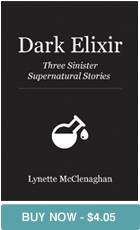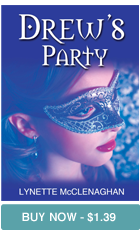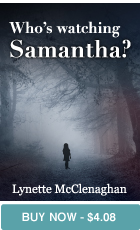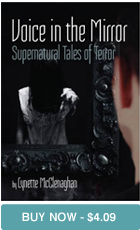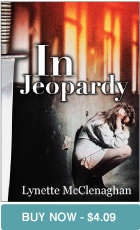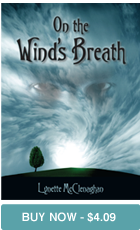December 22nd, 2014 |
Published in
Dark Tales, Horror, Self Publishing, Writer and Research

There is too much emphasis on the problems facing Indi authors and their dependence and deference to the Publishing Industry. As an Indi author I’m tired of hearing about how every route to self-publishing takes writers and authors back to the traditional publishing industry’s clutches.
Myth Three
The new paradigm for self-published authors is more lucrative for writers, because of decreased overheads. In fact the writer is required to shell out money for a number of services before the book even appears for sale. Alongside this the Indi writer has to engage in self-promotion and publicity. An acquaintance of mine paid in excess of $12k for his work on a manuscript. The original edit was so badly botched that it had to be redone – this involved more money. For example, there were no spaces after many of the full stops and the book was riddled with punctuation errors. This was a supposedly professional job.
You can’t sell an Ebook without great metadata. If want this task done properly you must do it yourself. This is another time consuming task. I write supernatural and dark fiction and discovered that the metadata was completely incorrect. On one E-Store my titles were categorised as Romance fiction. I had to research metadata then go through the process of getting the right metadata then passing it to a distributor I no longer use. I have since taken control and outsource necessary publishing services. It’s a case of buyer beware.
December 3rd, 2014 |
Published in
Dark Tales, Horror, Self Publishing, Writer and Research
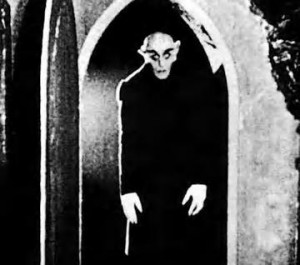
Nosferatu
November 2014 I presented a workshop at The Victorian Association for the Teachers of English (VATE). The focus of the presentation was as teacher to teacher about creating an Ebook and self-publishing. Within the cohort an academic booked into another workshop jumped ship to attend my presentation. This group were delightful to work with, because most of them wanted to learn more about self-publishing primarily for the benefit of their students. This workshop was pitched to assist teachers to collaboratively publish digital and print anthologies of students’ work. At the close of the session I was given a warm round of applause.
On a sourer note, since self-publishing and beginning this endeavor over four years ago, I have received numerous requests from people who want to pick my brains. They don’t read my work and I suspect don’t read my BLOGS or SOCIAL MEDIA POSTS which give advice based my experience. I return polite emails of either encouragement or useful tips. More irritatingly, I normally receive no thanks. No writer should feel at the mercy of these VAMPIRES. The best was a request from a horror writer who asked me to buy his book and review it. He attempted to flatter me by noting a good review I posted for another writer. I was willing to do this in exchange for him doing the same for me – it wasn’t reciprocated. I bought the book anyway; it wasn’t very good therefore I posted a negative review.
December 1st, 2014 |
Published in
Dark Tales, Horror, Self Publishing, Writer and Research
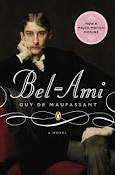
Brilliant read and grossly underrated film
Writer of horror and dark tales
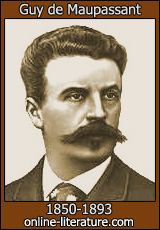
Myth two of five about Publishing
New corporations that have emerged as rivals to the traditional publisher claim that they are committed to their writers. This may be true of some. However, in my experience compared to my husband’s experience with traditional publishers it’s the opposite. The traditional publisher is more supportive of writers and is much more involved in the creation and promotion of their writer’s works. The biggest problem I’ve faced from this new breed of publishers is lack of communication and stated timelines spinning out to the ridiculous. For my last Ebook novel, In Jeopardy, the turn-around for paid publishing services was meant to be one month, but extended to five months; no explanation – only delays.
Of late I share the sentiments of Musician, Scott Grove who lives by the premise, ‘Don’t trust anyone until they prove trustworthy and likeable,’ following a number of experiences dealing with difficult people. The most recent incidents were after placing trust and good faith in a jeweler then a tradesman, both produced sub-standard work. Rather than taking responsibility both engaged in the blame game.
Like one of my favorite writers, Guy de Maupassant, I am a misanthrope and sometimes have a sour take on humanity. This is a feature that permeates throughout my work and partly explains why I write dark fiction rather than romance and fantasy.
October 18th, 2014 |
Published in
Dark Tales, Reviews, Self Publishing
Review – Upstairs at the Party
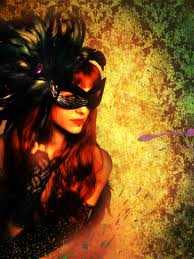
Even when reading for leisure, I read like a writer and think critically about what I’m reading. This often follows writing and posting reviews on Amazon of kindle and print purchases. Upstairs at the Party is a dark story. A review I read in the Herald Sun interested me enough to purchase this novel. Days later I read a review written in The Age giving Upstairs at the Party faint praise. The reviewer was critical of the story’s bleakness and added that it didn’t offer a happy ending, and this was a feature of the story that appealed as I write horror and dark tales. Like Upstairs at the Party horror, dark material and dirty realism offers hard hitting social commentary where happy endings only sanitise serious and thought provoking issues.
Upstairs at the Party is both a fascinating and frustrating read. As other reviewers have noted, it is a keenly observed and evocative portrayal of the characters’ time at university. It does not sentimentalise this era; some scenes are grim and confronting, and the social comment is apposite.
It is also a scathing indictment of selfish, self-centred people. We watch as the characters waste their lives and fritter away the value that their education and the privileges and responsibilities that it endowed them with on empty pursuits.
I found myself skipping bits as I became increasingly frustrated by characters’ aimless ineptitude. Their engagement with life is often oblique and peripheral. Perhaps this is Grant’s point – that their impotence has as much to do with flawed and undeveloped personalities as it has to do with the social conditions in which they live. She thereby reminds us of the importance of social and cultural engagement that goes beyond gestures and rhetoric.
October 2nd, 2014 |
Published in
Dark Tales, Horror, Reviews, Self Publishing, Writer and Research
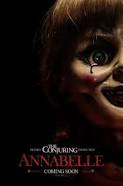
Annabelle – Movie review
Horror fans will enjoy this flick. Its cinematic effects and shock factor are dramatic and there are a number of frightening moments in the story. Annabelle will particularly appeal to a teenage audience. We were sitting next to a group of teenage girls who were scared witless and enjoyed themselves. Although the ending was derivative, the storyline didn’t give any clues away and the finale was a genuine surprise. However, Annabelle relied too much on horror film clichés, such as, the kindly priest who comes to the rescue and suffers for his goodness. Some of twists and turns in the plot seem to rely on easy options. The two main protagonist’s reactions are often naïve or foolish and seem to only serve to keep the plot going. After being terrorised by the hideous doll, Mia decides to keep it. The horror potential of some scenes could have been better explored or developed. For example, when the doll rises into the air Mia sees the face of a cartoonish devil which reduces the scare factor. Examples such as this one verge of cheesy. Alongside The Conjuring, the prequel, Annabelle, isn’t in the same class. The Conjuring maintains unrelenting tension where there is no easy escape for the characters.
September 29th, 2014 |
Published in
Dark Tales, Horror, Self Publishing, Writer and Research
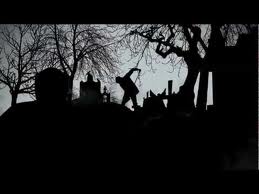
Writing horror and dark fiction
In my stories characters don’t simply have challenges or problems to overcome, but they are faced with crisis. The initial crisis usually reveals underlying problems which surface and become crisis in their own way. The importance of this approach to writing, particularly relating to dark tales, was confirmed in a critical study of Clint Eastwood’s films which argued that he operates in the same way.
Once again, I cannot overstress the necessity for fiction writers to read widely, both fiction and non-fiction. Writers benefit from engaging in research and their reading material must be serious and not simply a diet of junk. I don’t suffer from writer’s block because as with your health prevention is better than cure and reading widely is an investment in the quality of your work. Likewise, I’ve find that once the manuscript is approaching the final stages the writing isn’t finished. The writer is faced with creating a pitch, blurb, synopsis and a book description. These are unavoidable whether you are self-publishing or sending your manuscript to a publisher. For example, a self-publisher needs to articulate a clear brief that reflects the work so the graphic artist designs not only a striking cover, but one that resonates with your creative aims.
September 22nd, 2014 |
Published in
Dark Tales, Reviews, Self Publishing, Writer and Research
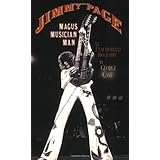
Jimmy Page: Magus Musician Man (an unauthorised biography) by George Case
Apart from my interest in Led Zeppelin as musical geniuses, reading is an essential part of the writer research component of my writing. I am currently working on a final draft of a story titled The Lester that combines music and the supernatural. Without committing to reading widely I don’t believe that I could write fiction.
I am reassured by this being an “unauthorized” biography as it has not been impinged upon by the subject or his minders. Case has been scrupulous in his research and his presentation of Page as a musician and band leader. The “magus” in the subtitle is a bit misleading as there is not much about Page’s involvement with magick – the Crowley and Anger connections are not dwelt on. Instead, Case presents Page’s “magus” qualities as inherent in his music and in the band’s profound influence – at the time and over the years.
Page’s musicianship, as a guitarist naturally, but also as a producer and arranger, is a key element in the story. Case is also a musician and so we are given plenty of details about the musical aspects of Page’s guitar work and in the studio. This material will interest musicians and those looking for a story that goes into aspects of Page’s and Led Zeppelin’s legacy that moves beyond stories of sharks and similar debauchery. Not that Case elides this kind of material. The band’s artistic decline is placed within the circumstances and events of the time.
While factually there may not be much that is new here, Case’s book is important because he analyses his subject. Their grinding schedule of recording and touring caused Page “psychic dislocation…from which he would never recover”, according to Case. He offers considerable insight into Page’s and the band’s triumphs and tragedies.
September 4th, 2014 |
Published in
Dark Tales, Horror, Self Publishing, Writer and Research
When Publishing Services Fail to Deliver
I am currently reloading my book titles up to kindle after terminating an unsatisfactory distribution agreement with a large Australian distributor.
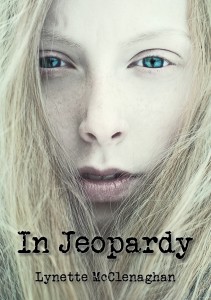
The publishing services provider I originally engaged to convert my novel from a word document to epub and mobi files has sent me corrupt files. As I am unable to view the text for In Jeopardy and upload it to Kindle the novel is only available as a pre-order on kindle until late October. I am in the process of arranging another provider to convert my original manuscript to a mobi file. In Jeopardy will appear as a revised version which will also include a new cover. I believe this will more closely evoke the protagonist’s plight and more aptly reflects the grim tone of the story.
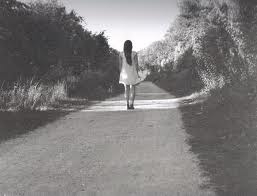
August 11th, 2014 |
Published in
Self Publishing, Writer and Research

The first myth is that self-publishing is a new paradigm that is taking power away from publishers and giving it to authors. Many of us have to work our way through paid publishing and distribution services who continue to call the shots. Writers pay these groups for their services, but have little or no control over how these organisations operate. It’s the same corporate model where the last person to see any money or to have any say in what happens to their own writing is the author. Is it little wonder that KDP is so popular when the alternatives are expensive and intransigent? Every Indi author will have to make the decision whether to truly go it alone or to be in the clutches of the corporate model.
April 16th, 2014 |
Published in
Dark Tales, Self Publishing, Writer and Research

The Resurrectionist by James Bradley is described as a “Gothic chiller” and “thrilling horror story” on the back cover, so with this review I will have a look at what makes the book fit such criteria. In particular I will look at Bradley’s writing style, which is powerful and atmospheric and vividly conveys the novel’s themes and concerns.
The main character, Gabriel Swift is living in 1820s London, apprenticed to Edwin Poll, an anatomist. Poll, and others in the story, exemplify science without conscience or morality. Gabriel is a promising student, but in the course of the story he persistently falls prey to the worst aspects of his character. Anatomists need bodies and much of the novel is located in the grim world of the resurrectionists. Chief of these is the malevolent Lucan, who wields a lot of power as the city’s chief body-snatcher. Lucan is a classic character from a Gothic tale. Gabriel is fearful of him, yet drawn to him.
One daunting task for writers of dark fiction is to convincingly depict moments of horror. I recently read a novel where the writer seemed to think that a list of gruesome details such as eating entrails from a steaming corpse was enough to constitute horror. Unfortunately, the effect was about as horrifying as a shopping list. Bradley, however, is a master of the effect. This was, for me, the best aspect of the novel – its powerful, atmospheric writing. Some scenes are viscerally moving. For example, here is part of a depiction of monstrosities preserved in jars: “…a line of larger jars, each holding a child deformed in some dreadful way: one’s head an empty sack which billows on its neck; another made as a mermaid is, its back and legs disappearing into serpent coils; the head of the next turned inside out, the teeth growing in concentric rings through the exposed meat of the palate as if the inverted hole sought to consume the face in which it sits from chin to brow”. This writing is visually arresting and disturbing. Gabriel is a gifted illustrator, so notes what he sees with an artist’s eye; the detached narrative voice takes in, dispassionately, without any sense of straining for effect, the dreadful details, making the writing chilling, the scene grotesquely immoral, an early glimpse into the ghastly world Gabriel is drawn into. It also picks up a key Gothic theme, the nature of monstrousness; and it alludes to the kind of society we see Dickens trenchantly critical of.
The Resurrectionist is a master-class in writing. Bradley is skilled in drawing the reader into an utterly repellent environment by making it both fascinating and appalling.












